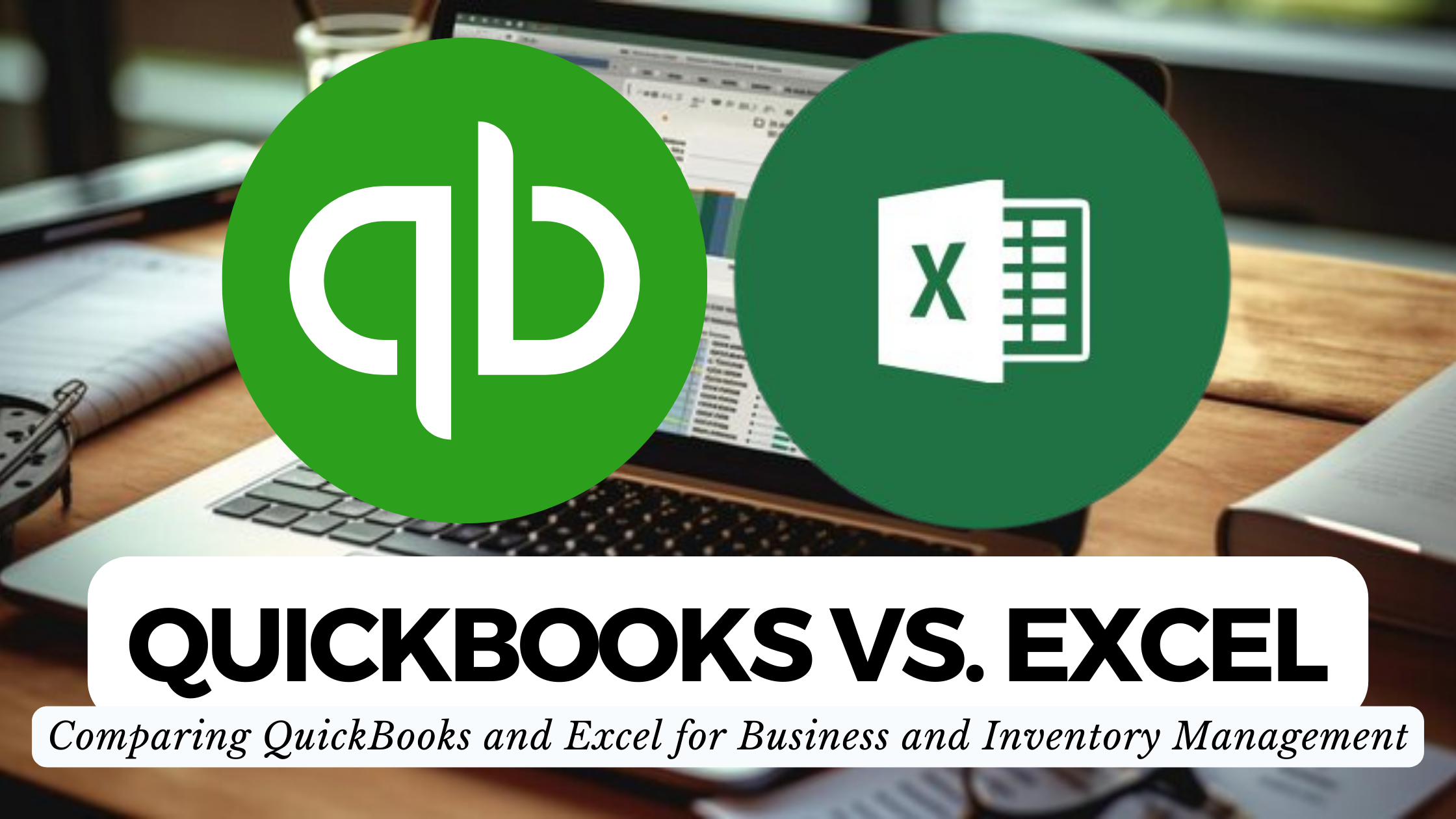QuickBooks vs. Excel: Comparing QuickBooks and Excel for Business and Inventory Management


QuickBooks vs. Excel: A Comprehensive Comparison for Business and Inventory Management
In the realm of business and inventory management, the choice between traditional spreadsheet software like Microsoft Excel and dedicated accounting software like QuickBooks is a decision that can significantly impact efficiency and productivity. This in-depth comparison explores the strengths and weaknesses of QuickBooks and Excel, helping businesses make an informed choice based on their unique needs.
Understanding the Dynamics: QuickBooks vs. Excel
QuickBooks:
QuickBooks is a robust accounting software designed for small and medium-sized businesses. It offers a suite of features for financial management, invoicing, expense tracking, and inventory management.
Key Features:
- Automated Bookkeeping: QuickBooks automates various bookkeeping tasks, saving time and reducing errors.
- Inventory Tracking: It provides tools for real-time tracking of inventory levels, helping businesses maintain optimal stock levels.
- Financial Reporting: QuickBooks generates comprehensive financial reports, offering insights into the financial health of the business.
- Invoicing and Payments: Users can create professional invoices and receive payments directly through the platform.
Pros of QuickBooks:
- Streamlined financial processes.
- Dedicated inventory management features.
- Scalability for growing businesses.
Cons of QuickBooks:
- Cost associated with subscription plans.
- Learning curve for users unfamiliar with accounting software.
Microsoft Excel:
Excel, part of the Microsoft Office suite, is a versatile spreadsheet software widely used for various business applications, including budgeting, data analysis, and inventory tracking.
Key Features:
- Customizable Spreadsheets: Users can create tailored spreadsheets to track inventory, expenses, and sales.
- Data Analysis Tools: Excel offers powerful tools for data analysis, ideal for businesses with complex data sets.
- Integration Capabilities: It can be integrated with other Microsoft Office applications for seamless workflow.
Pros of Excel:
- Familiarity and widespread use.
- One-time purchase without subscription fees.
- Flexibility for custom solutions.
Cons of Excel:
- Manual data entry may lead to errors.
- Limited automation compared to dedicated accounting software.
SaaS Products for Enhanced Business and Inventory Management:
- Zoho Books:
- A cloud-based accounting solution with features for invoicing, expense tracking, and inventory management.
- Wave Financial:
- A free accounting software with capabilities for invoicing, accounting, and receipt scanning.
- Xero:
- An online accounting platform suitable for small businesses, offering invoicing, inventory, and payroll functionalities.
- Airtable:
- A collaborative platform that combines the simplicity of a spreadsheet with the complexity of a database, ideal for customizable inventory tracking.
Conclusion: Making the Right Choice
The choice between QuickBooks and Excel ultimately depends on the specific needs and scale of the business. For businesses requiring advanced financial features and dedicated inventory management, QuickBooks provides a comprehensive solution. Excel, on the other hand, offers flexibility and familiarity, making it suitable for smaller businesses with simpler requirements.
Unlock Exclusive SaaS Deals with Subscribed.FYI
Ready to optimize your business and inventory management? Subscribed.FYI offers exclusive deals on SaaS tools like Zoho Books, Wave Financial, Xero, and Airtable. Sign up today to access secret deals and elevate your business operations.








